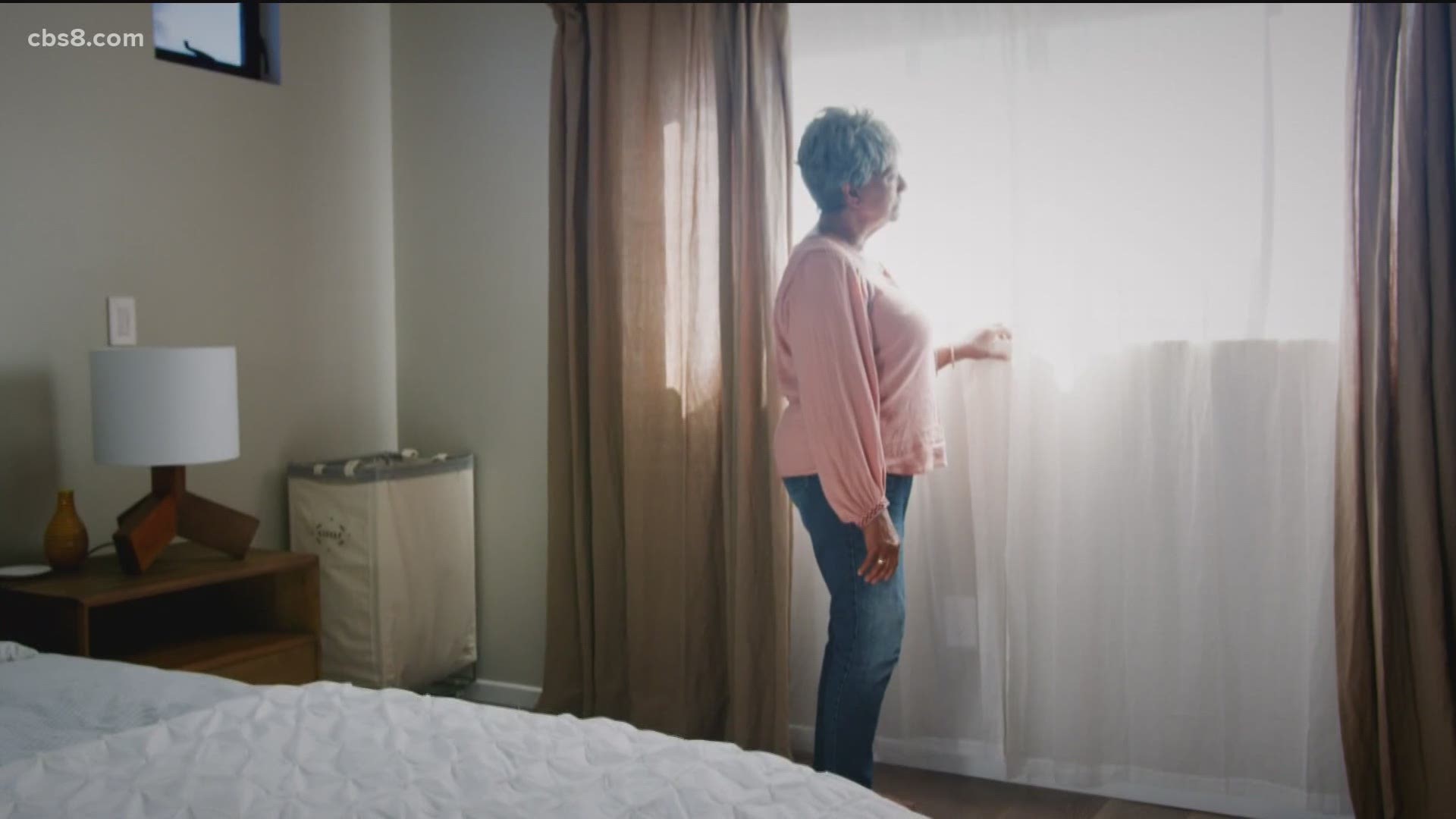The following story discusses mental health issues such as suicide - as well as free resources.
2020 continues to be the year of losses.
"Before the pandemic, the most recent research showed 800,000 people died by suicide each year and that's globally. That's one person every 40 seconds," said Allison Johnson, a licensed marriage and family therapist with the Center for Community Solutions.
Johnson added that the pandemic and lockdowns have no doubt exacerbated suicidal ideation. Suicide statistics for 2020 are not out yet.
"What we've seen with the pandemic is an increase in the rise in factors that are already associated with suicide - job loss, stress at home, isolation, loss of hobbies and health-related concerns," said Johnson.
Lindsay Kramer, a lead therapist at Sharp Mesa Vista, said she has seen a correlation between the pandemic and mental health.
"Just over the last few months we have seen a lot more patients that have been very negatively affected," said Kramer.
According to the CDC, suicide is the 10th leading cause of death in the United States and firearms are the most common suicide method. Data from the Federal Bureau of Investigation's background check system shows gun sales spiked between March and May.
"There's still just so little information that actually exists. This is what's reported versus what's actually happening. I think there is a disconnect between what we think we know versus what's actually going on and that's the nature of the pandemic," said Kramer.
Here are some warning signs:
- problems eating or sleeping
- mood swings
- reckless behavior
- alcohol or drugs abuse
If you haven't already, reach out to a withdrawn loved one and ask if they are ok. You could save a life. To connect with suicide prevention and mental health crisis counselors, call 1-800-273-TALK (8255).


